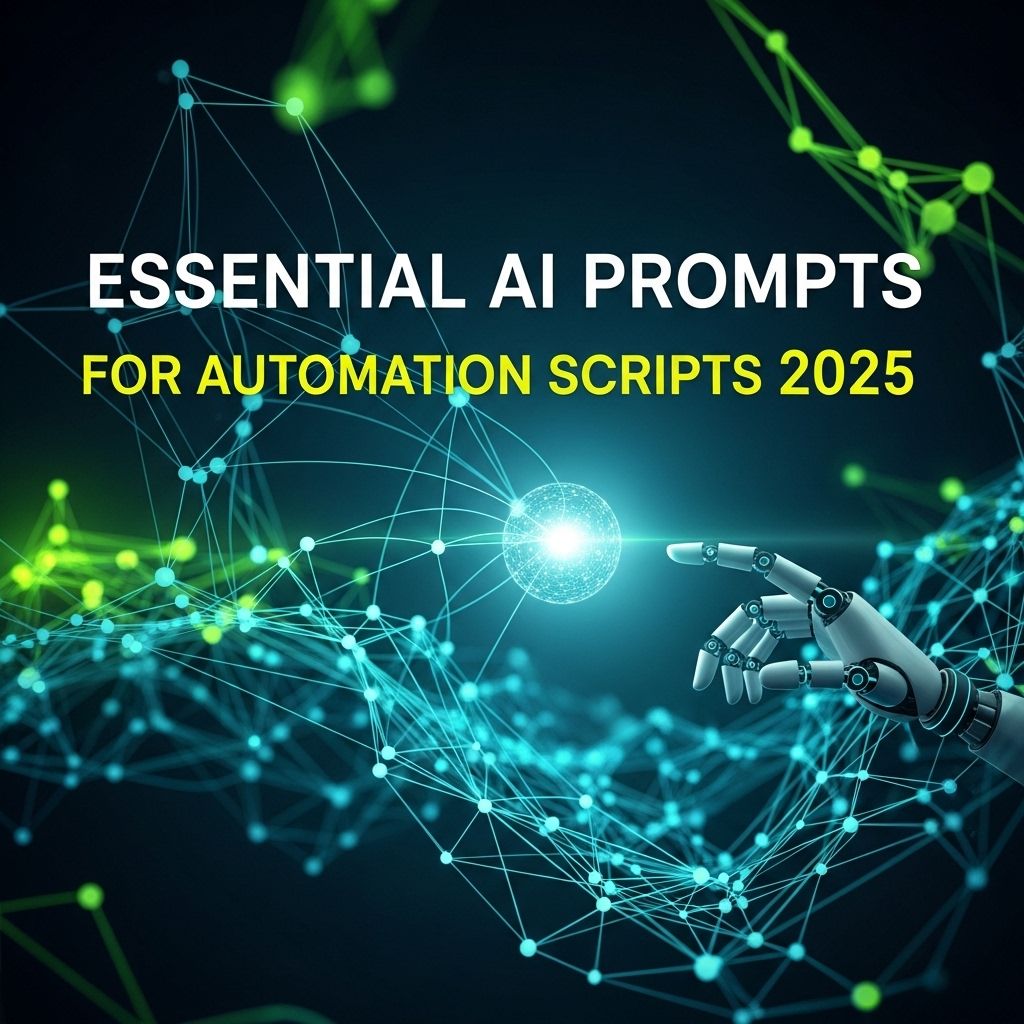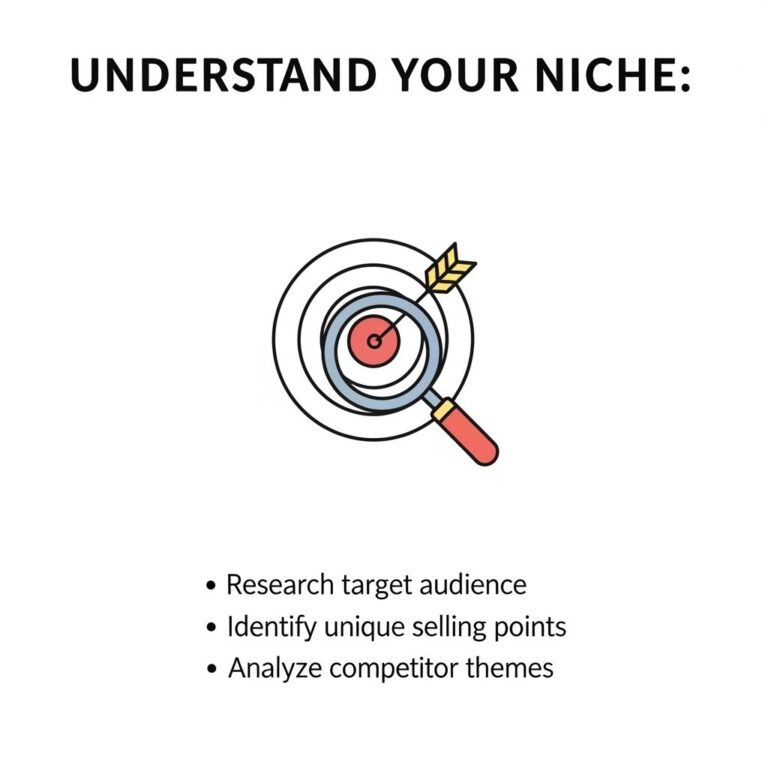As we move further into the realm of artificial intelligence, the need for effective automation scripts has never been more apparent. In 2025, organizations are increasingly relying on AI to streamline operations, improve efficiency, and enhance decision-making processes. However, the success of these automation scripts hinges on the quality of the AI prompts used to guide them. By understanding and utilizing essential AI prompts, developers and tech-savvy professionals can craft scripts that not only perform tasks but also adapt and learn from their environments. In this article, we will explore some of the key AI prompts that can enhance automation scripts in various industries.
As automation scripting continues to evolve in 2025, the importance of well-crafted AI prompts cannot be understated. These prompts serve as foundational tools for streamlining workflows and enhancing productivity. For those in design fields, Find logo mockups for interior design can further illustrate how automation can reach new creative heights.
Table of Contents
Understanding AI Prompts
AI prompts are the instructions or queries given to an AI model to generate a response or perform a task. These prompts can range from simple commands to complex queries that require nuanced understanding. In the context of automation scripts, prompts play a crucial role in determining how AI interprets tasks and the efficiency with which it completes them.
Types of AI Prompts
- Direct Commands: These prompts provide straightforward instructions for the AI to follow.
- Contextual Prompts: These prompts include background information that helps the AI understand the context of the task.
- Conversational Prompts: These are used for more interactive scripts where the AI engages in dialogue with users.
- Conditional Prompts: These prompts utilize if-then logic to guide AI decision-making processes.
Essential Prompts for Automation
When designing automation scripts, incorporating specific prompts can drastically improve performance and outcomes. Below are some essential AI prompts to consider:
1. Data Collection Prompts
Data collection is often the first step in automation processes. Effective prompts can help in extracting relevant data quickly and accurately. Example prompts include:
- “Retrieve the latest sales data from the database for the last quarter.”
- “Collect customer feedback from the most recent surveys and summarize key insights.”
2. Data Processing Prompts
Once data is collected, processing it through automation scripts is crucial. Use these prompts:
- “Analyze the sales data to identify trends over the last year.”
- “Process the customer feedback and categorize it into positive, negative, and neutral sentiments.”
3. Reporting Prompts
Automated reporting can save time and improve decision-making. Consider these prompts:
- “Generate a report displaying key performance indicators for the marketing team.”
- “Create a monthly summary of customer support ticket resolutions.”
4. Alerting and Notification Prompts
Automation scripts can enhance responsiveness through alerts. Prompts like the following are effective:
- “Notify the sales team if the quarterly targets are not met.”
- “Send an alert when customer satisfaction scores drop below a specified threshold.”
5. User Interaction Prompts
For scripts involving user interaction, the following prompts can initiate meaningful dialogues:
- “How can I assist you today with your query?”
- “Please specify the type of report you would like to generate.”
Incorporating AI Prompts into Automation Scripts
To effectively integrate AI prompts into automation scripts, follow these best practices:
1. Clarity and Precision
Ensure that prompts are clear and specific to minimize ambiguity. This helps the AI understand exactly what is required, leading to better outcomes.
2. Iterative Testing
Regularly test and refine prompts based on performance feedback. An iterative approach ensures that prompts evolve alongside the changing requirements of the automation tasks.
3. Use of Templates
Creating templates for common tasks can streamline the process of prompt creation. Here’s a simple template for data collection:
| Task | Prompt |
|---|---|
| Sales Data Retrieval | “Retrieve sales data for {time period} from {source}.” |
| Customer Feedback Collection | “Gather feedback from {source} and summarize.” |
4. Contextual Understanding
Incorporate contextual information into prompts whenever possible. For instance:
- “Considering the recent changes in market trends, what adjustments should we make to our sales strategy?”
5. Leverage User Data
Utilize data about user preferences and behaviors to customize prompts. This can enhance user satisfaction and improve the interaction with automation scripts.
Future Trends in AI Prompts for Automation
As technology evolves, so will the nature of AI prompts in automation. Some emerging trends include:
1. Natural Language Processing (NLP)
Advancements in NLP will enable more sophisticated and conversational prompts, allowing users to interact with automation scripts in a more intuitive manner.
2. Machine Learning Integration
Automation scripts that utilize machine learning can adapt prompts based on historical data and user interactions, leading to more relevant and effective automation.
3. Personalization
AI prompts will become increasingly personalized, catering to individual user needs and preferences, improving overall user engagement.
Conclusion
In 2025, the role of AI prompts in automation scripts will be crucial for businesses seeking to enhance efficiency and effectiveness. By leveraging the essential prompts outlined in this article, tech-savvy professionals can create robust automation solutions that not only complete tasks but also enhance the overall user experience. As we embrace these advancements, the possibilities for automation continue to expand, paving the way for a more efficient and intelligent future.
FAQ
What are essential AI prompts for automation scripts in 2025?
Essential AI prompts for automation scripts in 2025 include commands that enhance efficiency, such as ‘automate report generation’, ‘schedule data backups’, and ‘integrate API responses into workflows’.
How can I improve my automation scripts using AI prompts?
You can improve your automation scripts by using AI prompts that suggest optimizations, like ‘refactor code for performance’, ‘analyze error logs’, and ‘recommend best practices for automation’.
What industries benefit from AI-driven automation scripts?
Industries that benefit from AI-driven automation scripts include finance, healthcare, manufacturing, and marketing, as they streamline processes and enhance productivity.
Are there specific tools for creating automation scripts using AI prompts?
Yes, tools like Zapier, UiPath, and Microsoft Power Automate provide user-friendly interfaces to create automation scripts with AI prompts.
What is the future of automation scripts with AI in 2025?
The future of automation scripts with AI in 2025 is focused on increased integration, predictive analytics, and real-time decision-making, allowing businesses to adapt quickly to changing demands.
How can businesses ensure their automation scripts are future-proof?
Businesses can ensure their automation scripts are future-proof by regularly updating their AI models, adopting flexible architectures, and investing in ongoing training for their teams.









